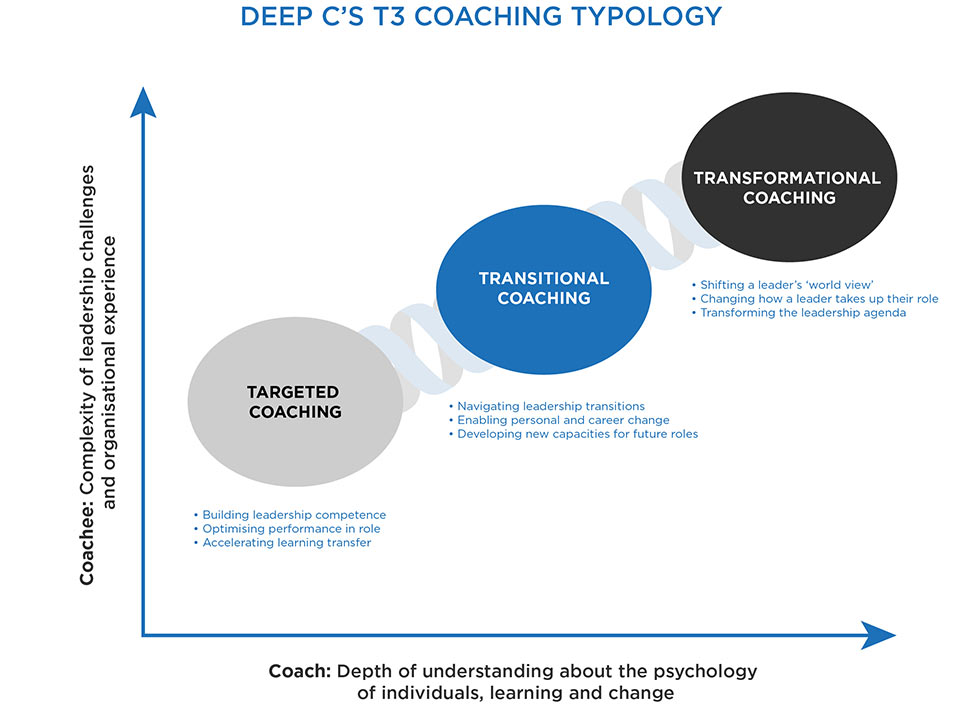
A collection of articles and white papers showcasing our thinking on leaders and leadership….
EXECUTIVE COACHING – WHAT’S IN A NAME?
At Deep C, we use our own ‘T3’ typology of coaching, diverging somewhat from conventional thinking in the field. Our experience of delivering executive coaching – as seen through the eyes of our clients – highlights three broad coaching domains:
Using our typology, the nature of any coaching intervention is essentially defined by two variables: the complexity of the coachee’s leadership challenges and organisational experience (which may be a function of seniority – but perhaps in other cases, is not), together with the coach’s ability to work at depth. Our T3 approach also recognises that an executive coaching intervention might shift over time between the different ‘T’s, depending on the needs of the coachee:

The inter-relatedness of the three domains suggests that any given point in a coaching intervention, the process might be seen as ‘pure play’ Targeted, Transitional or Transformational coaching. However, given the dynamic nature of coaching, the process may shift (within- and between-sessions) between the three domains, in order to optimise learning and outcomes for the coachee.
Targeted Coaching
With Targeted Coaching, our focus with the coachee is typically on:
- Building leadership skills and behaviour
- Enhancing the leader’s performance in current role
- Applying leadership learning from one context to another (e.g. transfer of learning from a leadership development programme back in the real world)
Not restricted to external coaches, this is a key area where managers can add value through adopting a coaching style of leadership.

Transitional Coaching
Transitional Coaching on the other hand, addresses deeper issues for leaders as they:
- Navigate key leadership transitions (e.g. moving into general management or a board-level position)
- Undertake significant personal and career change (e.g. that first expatriate assignment, or a female executive returning to work following a career break)
- Develop new capacities to ensure relevance and ‘fit’ for future roles and leadership challenges.
Here, our focus is working with the whole person at a much deeper level, exploring their desired future state and the mental, emotional and behavioural challenges involved in getting there.
Transformational Coaching
The focus of Transformational Coaching is typically less about the ‘doing’ aspects of leadership and more about ‘being’ as a leader. It aims for deep reflection and profound changes in how a leader thinks, feels and acts, especially regarding:
- Their ‘world-view’ (how they see themselves and experience their external environment)
- How they ‘show up’ as a leader in terms of their identity, purpose and relationship patterns
- Creating a radical shift in the way they operate and lead change.
Transformational Coaching can be helpful in situations where a leader is under pressure to make a step-change in their approach to a situation and where they do not have the luxury of time to engage in incremental personal development.
In today’s fast-changing business environment, this type of coaching has tremendous relevance and appeal, especially for senior leaders. The consequence of slow personal adaptation and change can be career-limiting, even for the most well-intentioned executive
